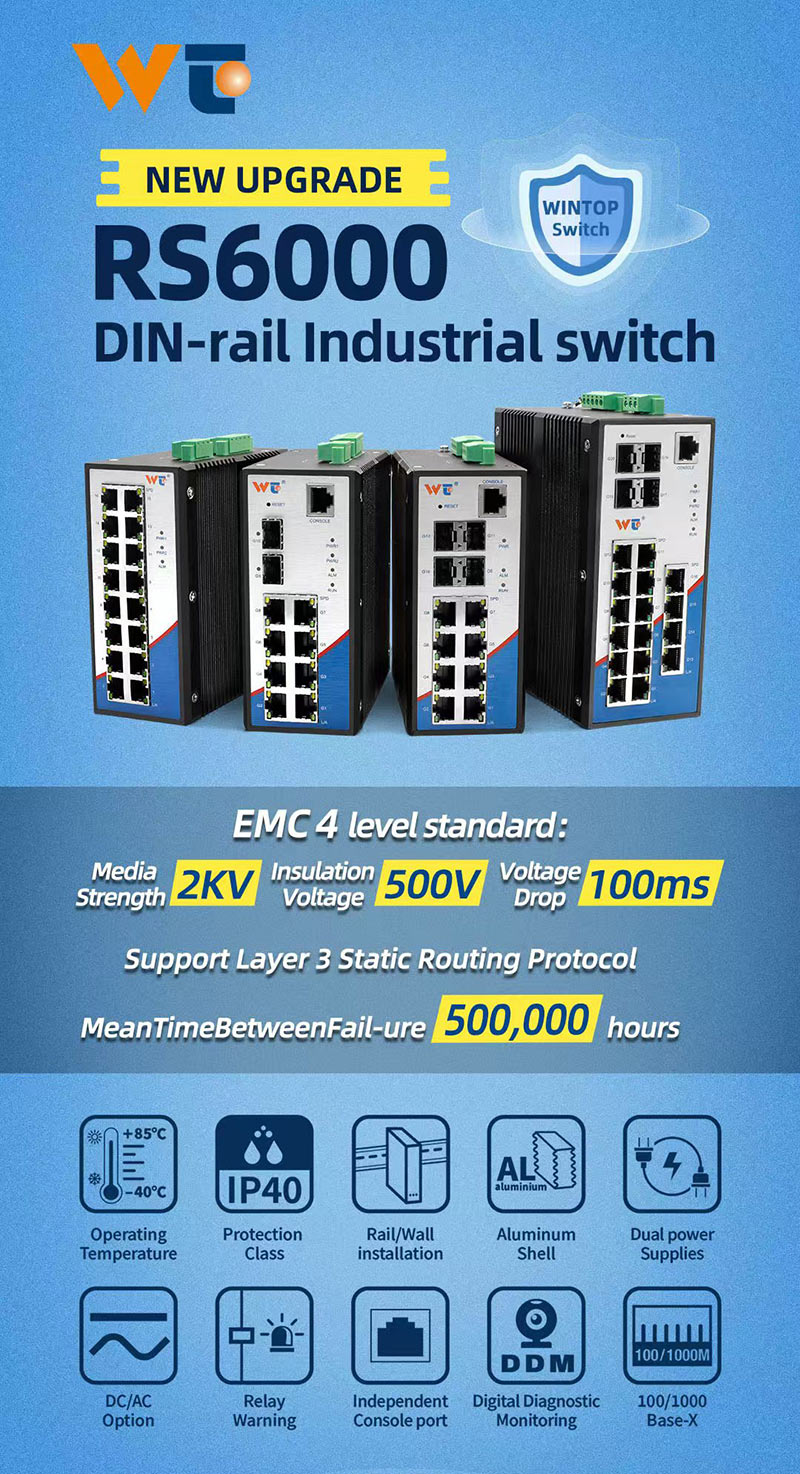Production Automation: The Application of Industrial Switches in Production Process Automation Systems
Automation has been revolutionizing industries across the globe, turning tedious processes into seamless, efficient operations. But what often goes unnoticed are the integral components that make this possible. Among these, industrial switches play a crucial role in modern production process automation systems. Their function, while sometimes overshadowed by the more glamorous robots and AI algorithms, is indispensable. Let’s delve into the fascinating world of industrial switches and uncover how they are the silent enablers of production automation.
The Backbone of Production Automation
Imagine a vast automotive manufacturing plant. Automated conveyor belts move car chassis from one station to another, robotic arms weld components with precision, and computerized systems monitor every minute detail. At the heart of this sprawling network are industrial switches, ensuring that every electrical signal reaches its intended destination without fail. These switches act as the central nervous system of automation, directing signals where they are needed most and maintaining the smooth operation of the entire production line.
Reliable Control and Communication
In any production environment, reliability is key. A single miscommunication can lead to significant downtime and financial losses. Industrial switches are built to withstand harsh conditions, ensuring that they provide consistent performance even in the most challenging environments. Modern switches are designed to handle high data loads and ensure efficient communication between different segments of the production line. For instance, in a pharmaceutical plant, where sterility and precision are paramount, these switches coordinate real-time adjustments and quality checks, preventing costly errors or contamination.
Enhancing Safety Measures
Safety is paramount in any automated production system. Industrial switches contribute significantly to maintaining safe working conditions. They enable the integration of emergency stops and safety sensors throughout the production process. Consider a textile factory: if a worker's clothing gets caught in a machine, an emergency stop button connected through an industrial switch can halt the machine instantly, preventing injury. This quick response is only possible due to the reliable and immediate action of the switches embedded within the system.
Case Study: The Automotive Industry
A remarkable example of the application of industrial switches is found in the automotive industry. Here, the precision and reliability of each component are non-negotiable. Automobile manufacturers use a plethora of industrial switches in assembly lines, welding processes, and even in vehicle testing stages. Take Tesla, for instance. Their automated factories utilize intelligent switches to control robotic welders, manage conveyor systems, and ensure that the assembly lines run with military-grade precision. These switches contribute to the large-scale production of high-quality vehicles, maintaining consistency and safety.
Environmental Impact and Energy Efficiency
As industries become more conscious of their environmental footprint, industrial switches play a significant role in energy management and sustainability. Intelligent switches can optimize power consumption by shutting down non-essential machines during low production periods and ensuring efficient energy distribution. In a paper mill, for instance, utilizing smart switches helps in monitoring energy usage and reducing wastage. This not only saves costs but also minimizes the environmental impact, making production more sustainable.
Future of Production Automation
The future of production automation looks promising with the integration of more advanced industrial switches. As the Internet of Things (IoT) and Artificial Intelligence (AI) continue to evolve, switches are becoming smarter, offering greater control and analytics capabilities. Predictive maintenance is one of the exciting advancements brought by these intelligent switches. By analyzing data in real-time, they can predict potential breakdowns before they occur, ensuring uninterrupted production. This is particularly crucial in industries like semiconductor manufacturing where even a minor delay can disrupt the supply chain.
Conclusion: Embracing Automation with Intelligent Switching
Industrial switches are the unsung heroes of production automation, ensuring that every process runs efficiently, safely, and sustainably. From blacksmith shops of old to the high-tech factories of today, the evolution of production has always hinged on reliable control systems. As we move forward into an era characterized by greater connectivity and smarter processes, the role of industrial switches will only grow in importance. They are not just components but are the essential gears that drive the automated industries, ensuring progress and innovation at every step.
So, next time you marvel at the speed and efficiency of a modern production line, remember the humble industrial switches working tirelessly behind the scenes. It is these silent sentinels that enable the marvels of automation, helping industries achieve new heights of productivity and safety.
